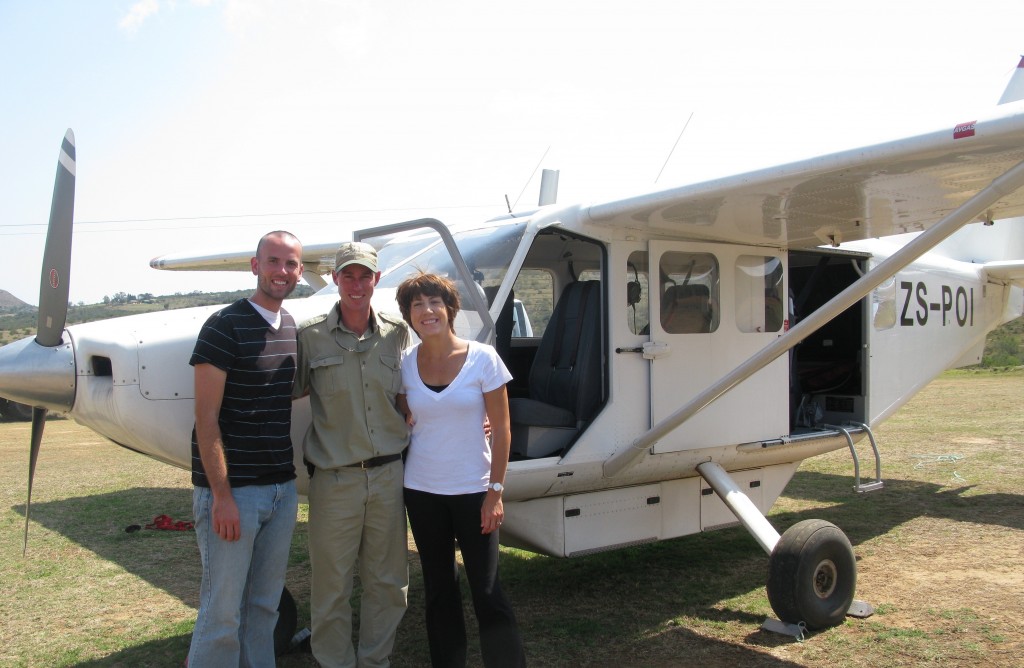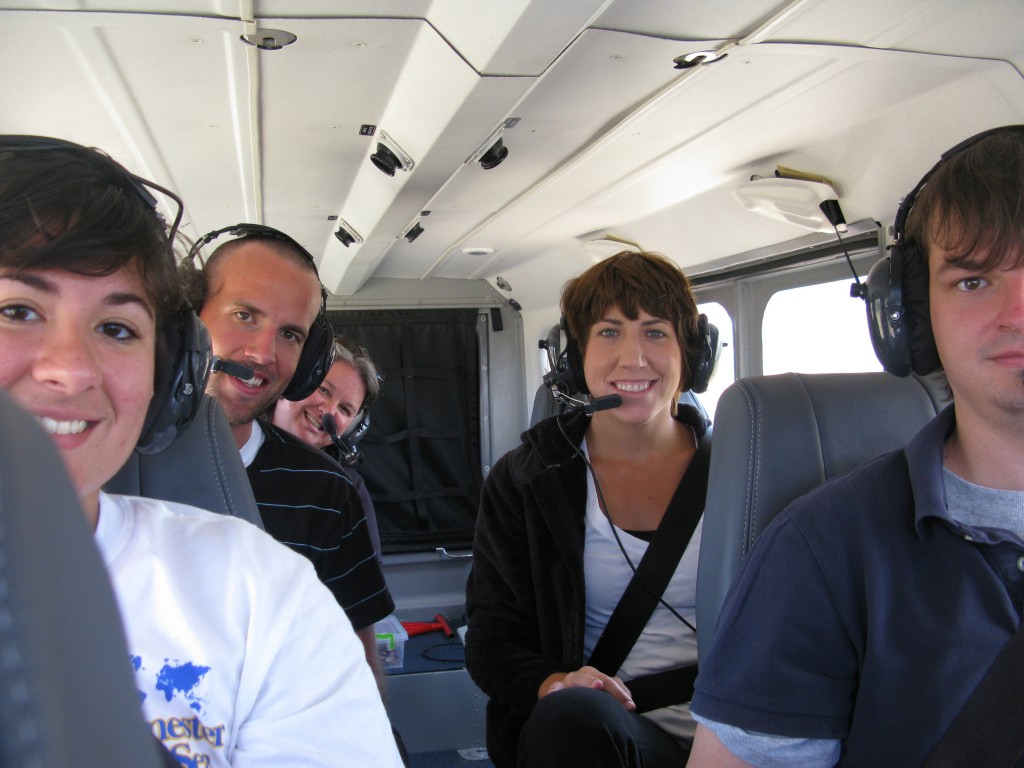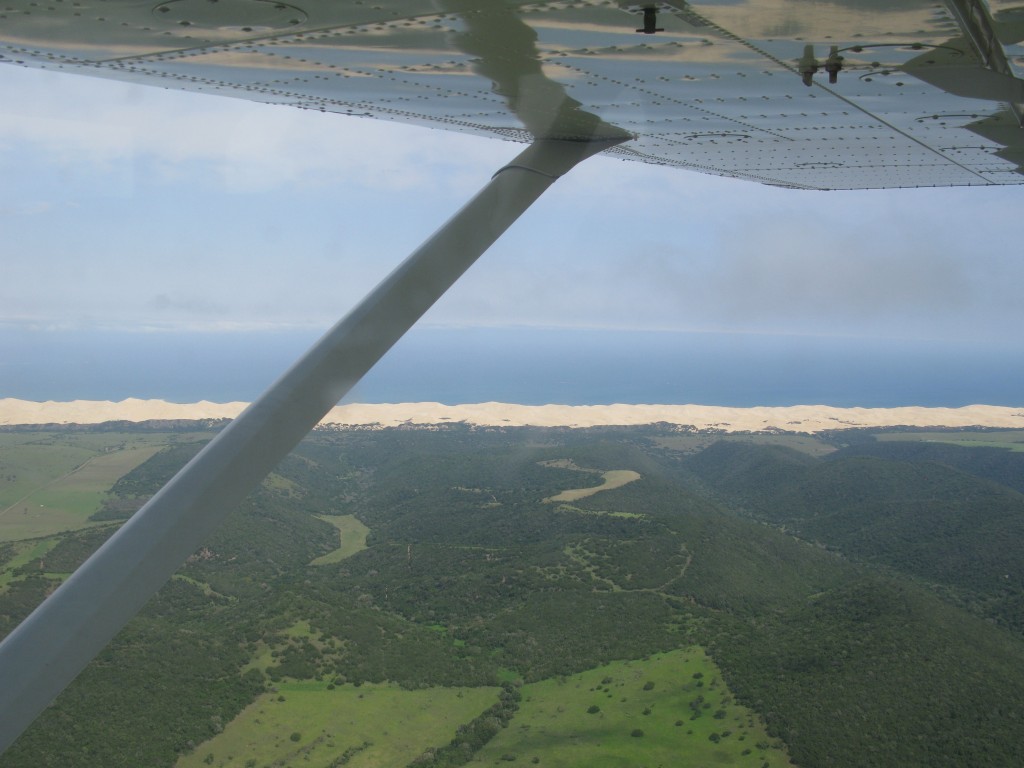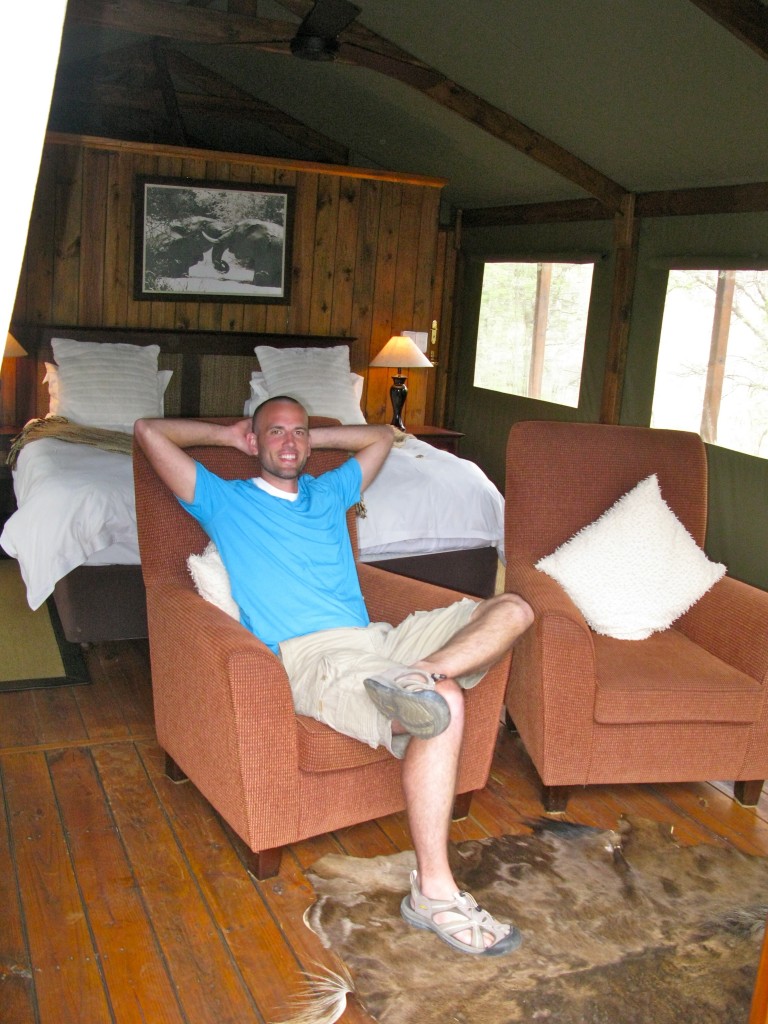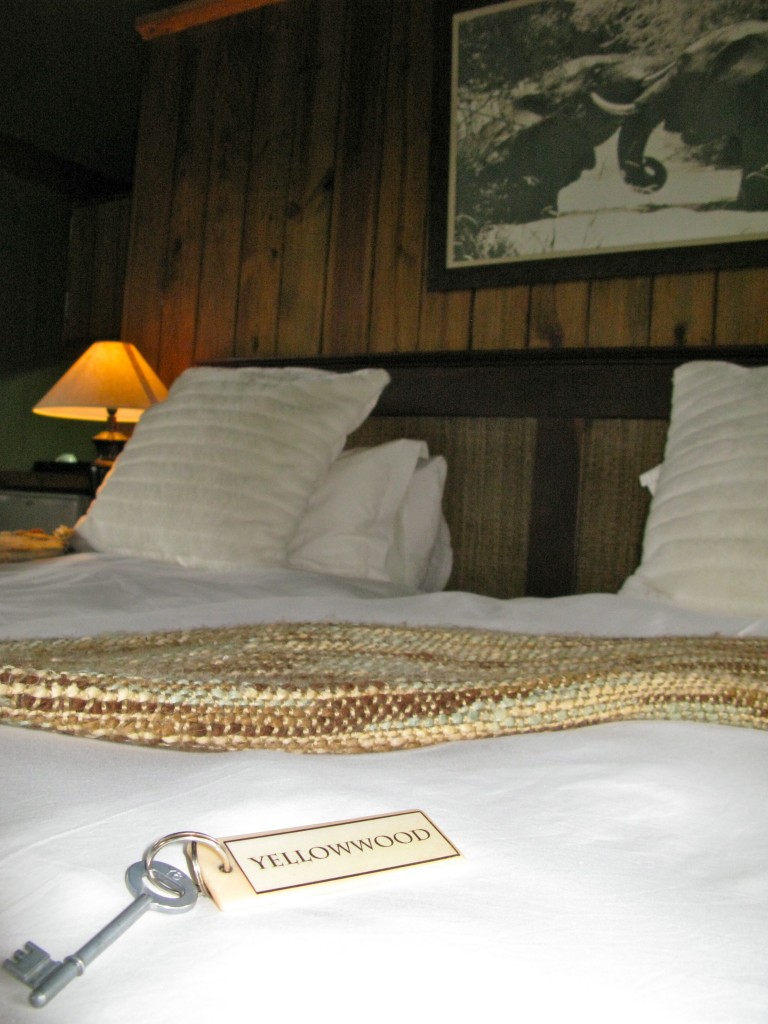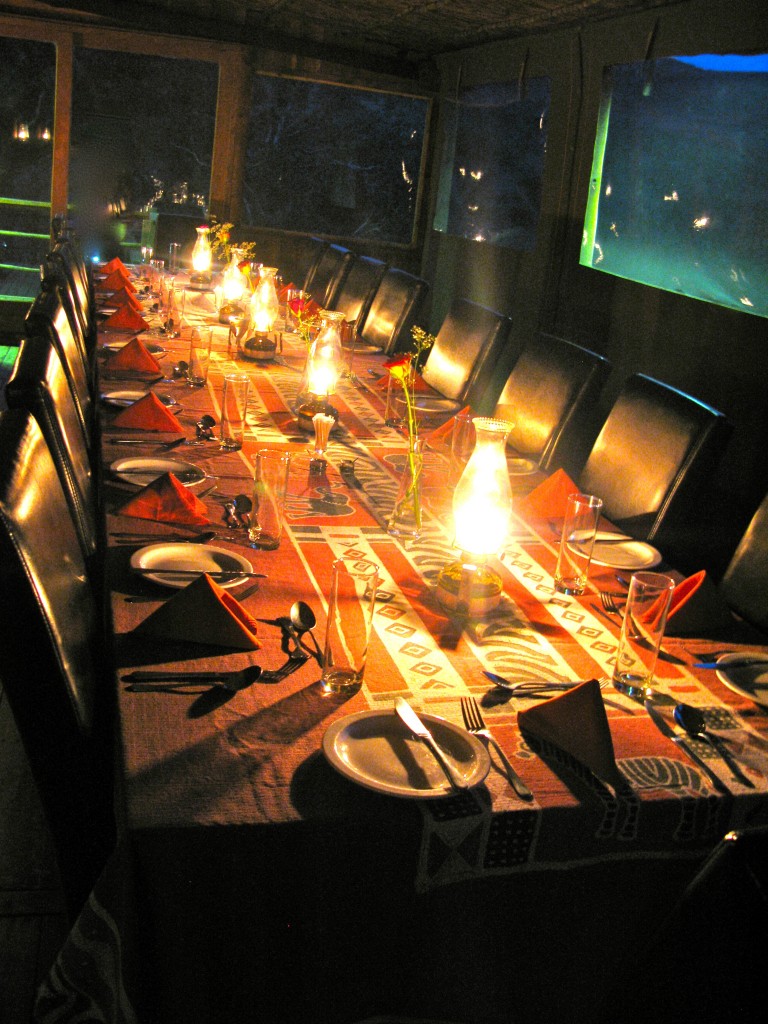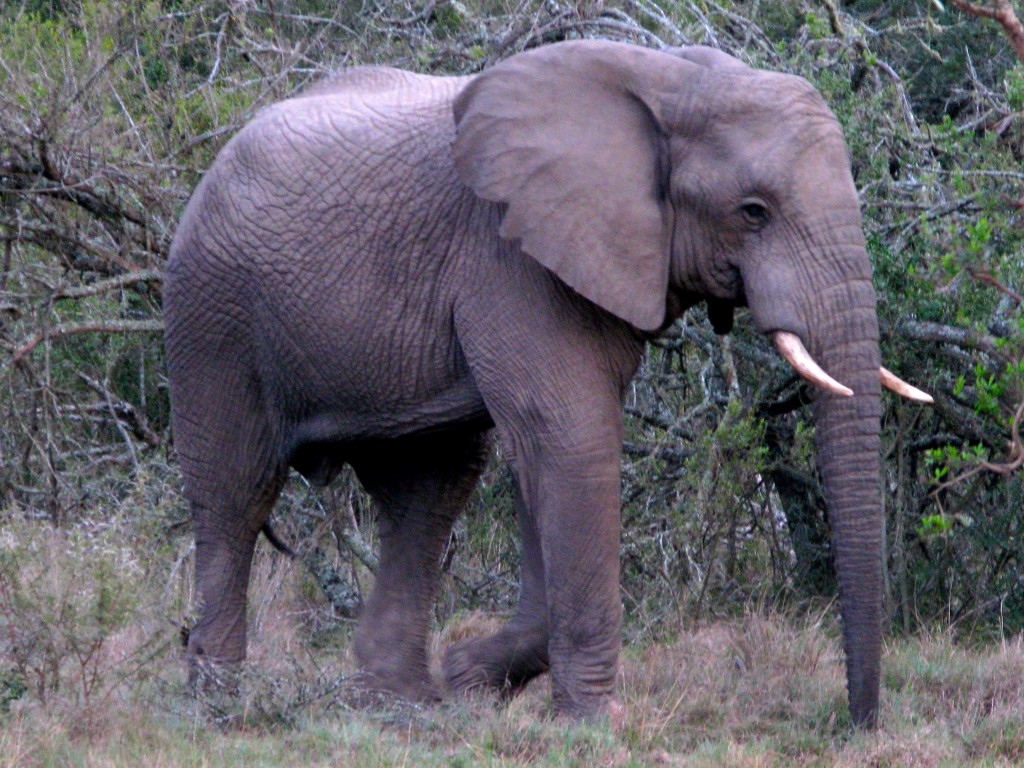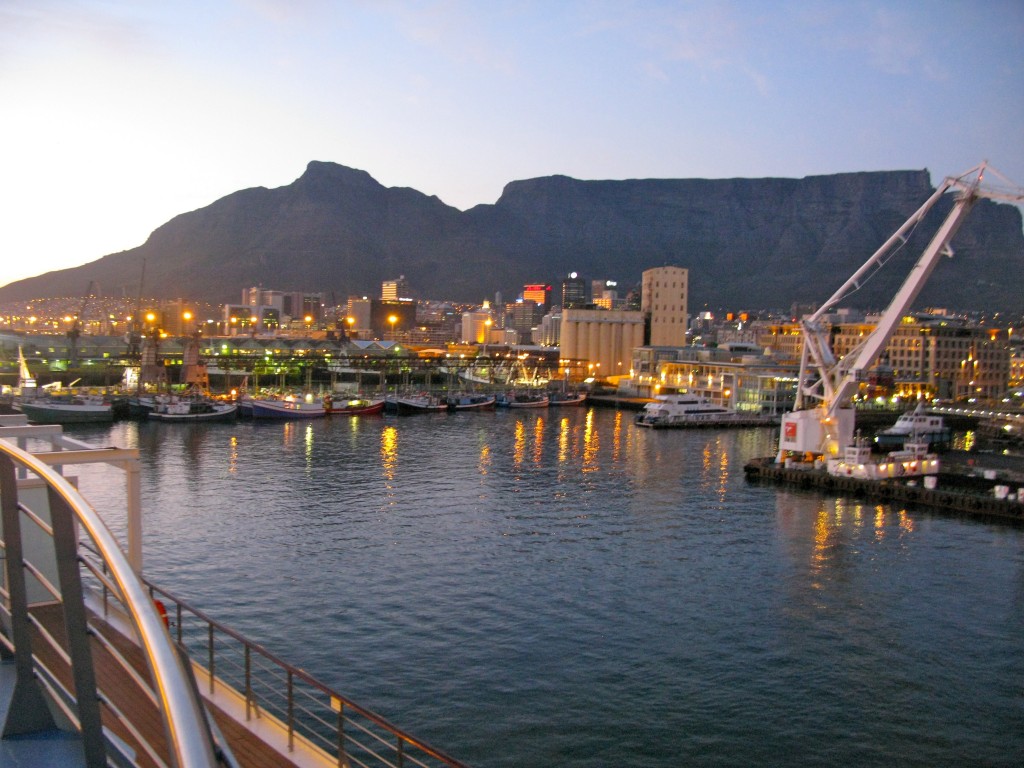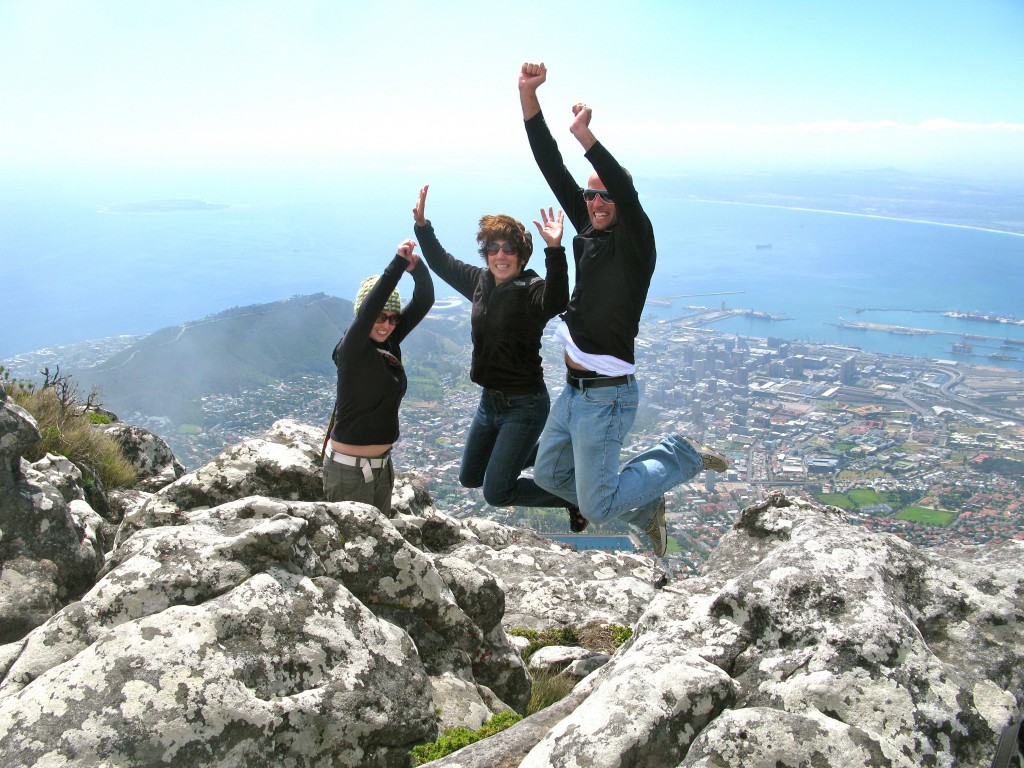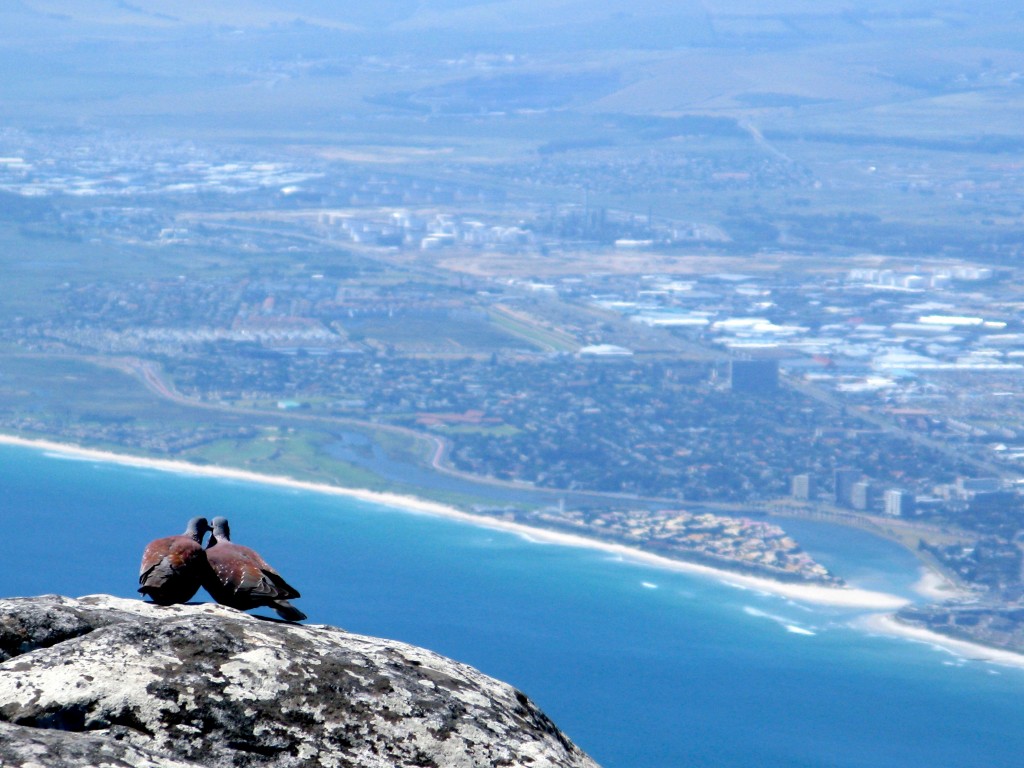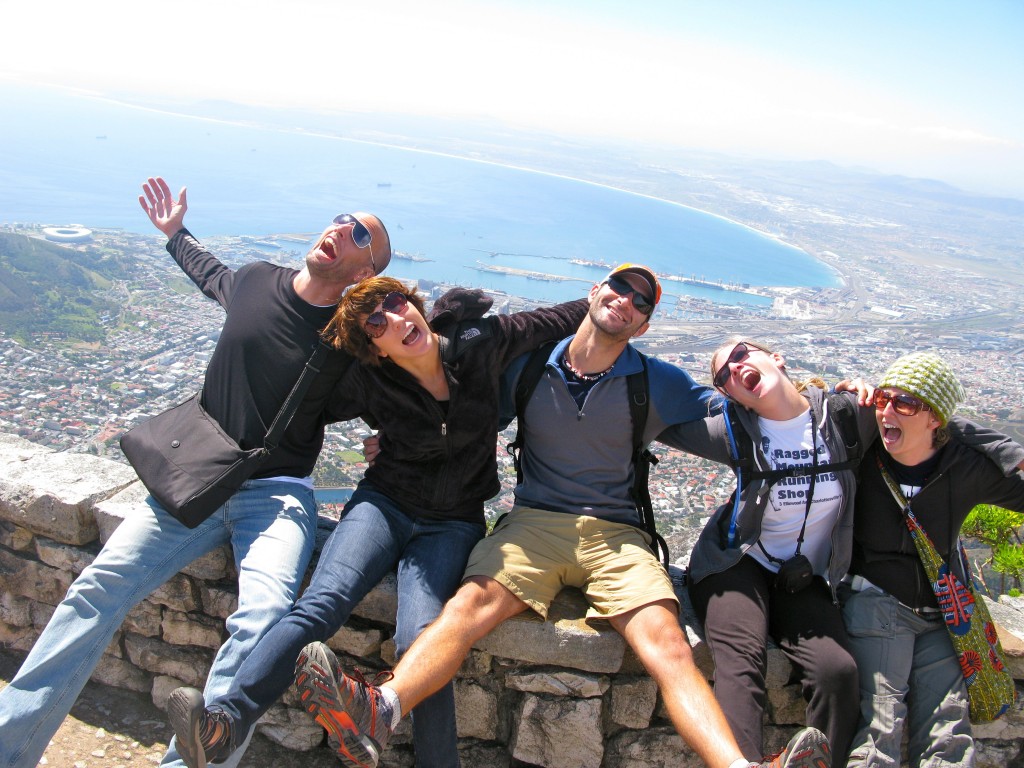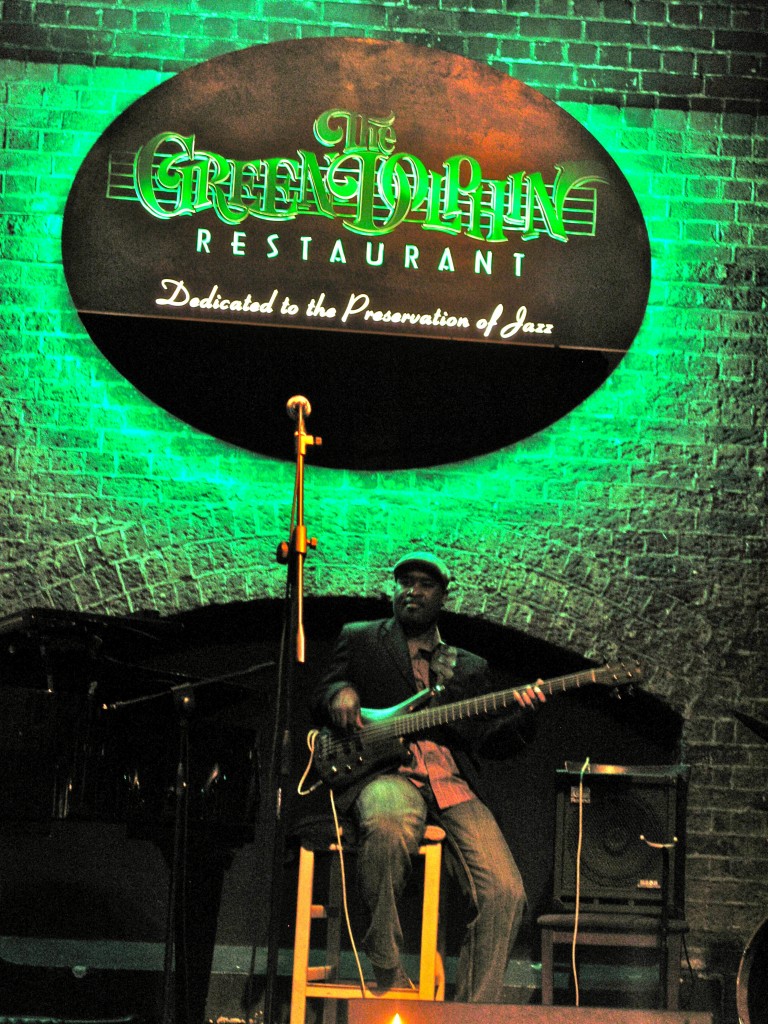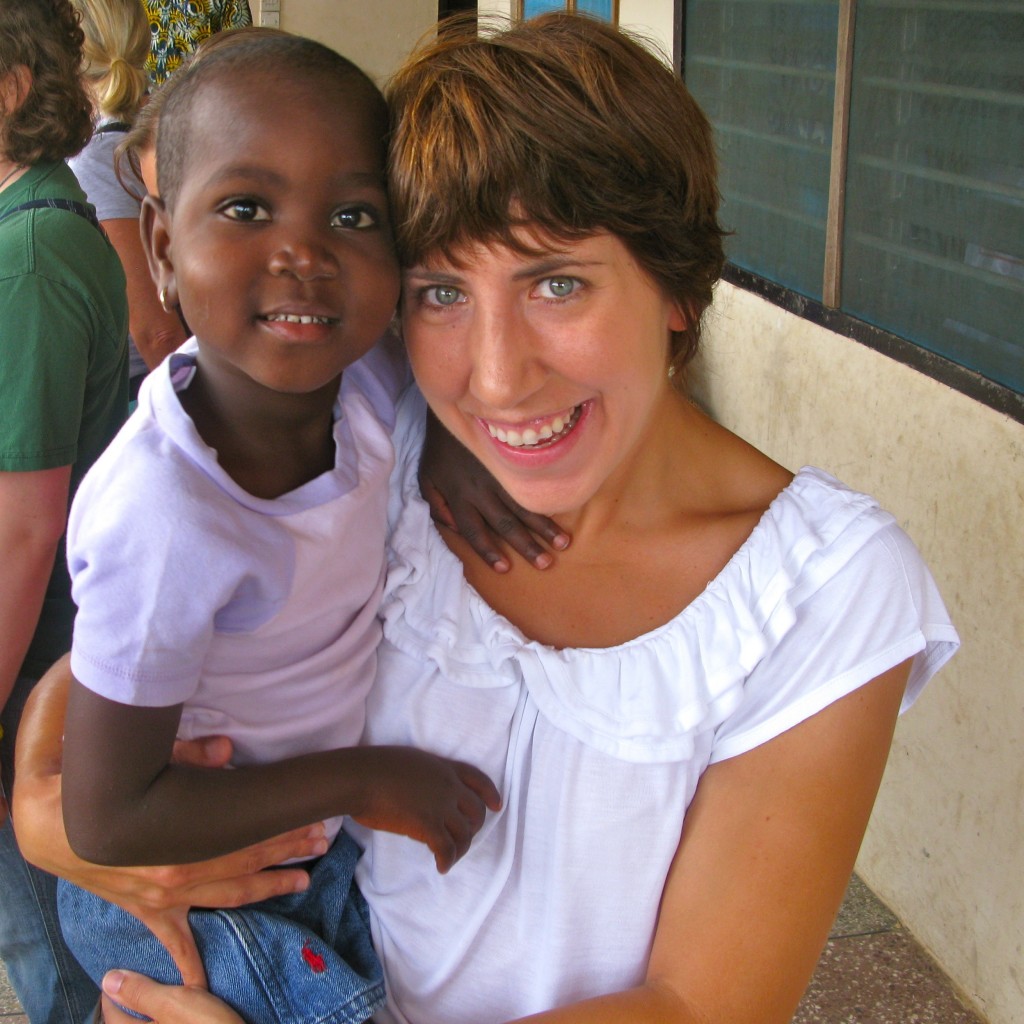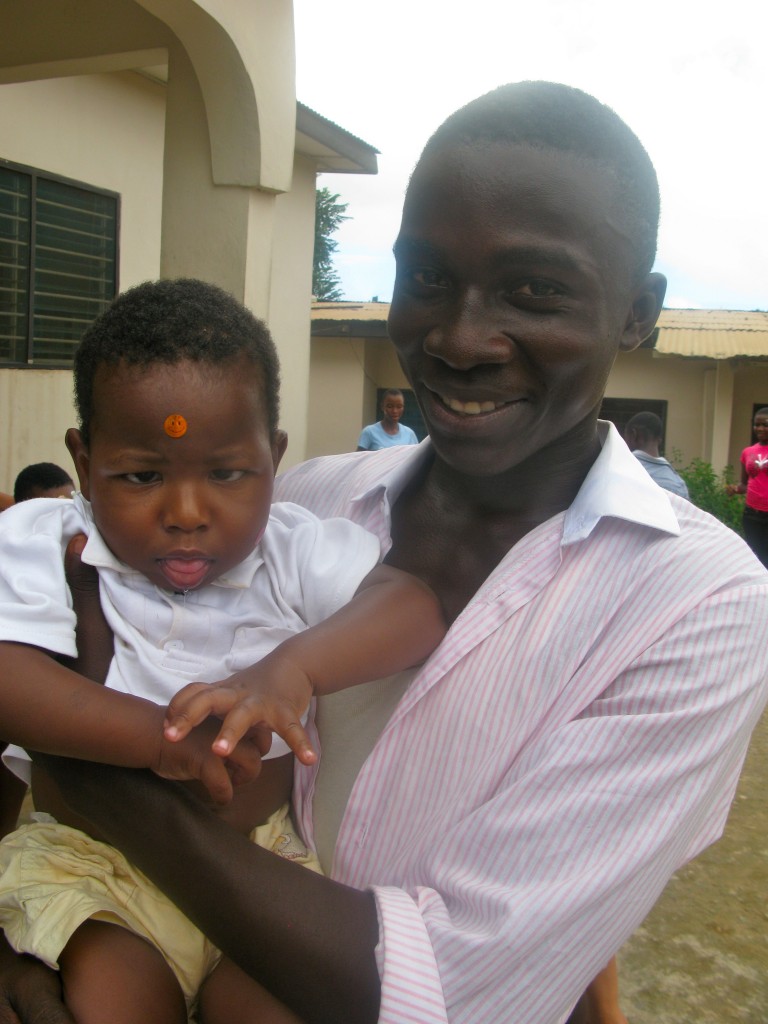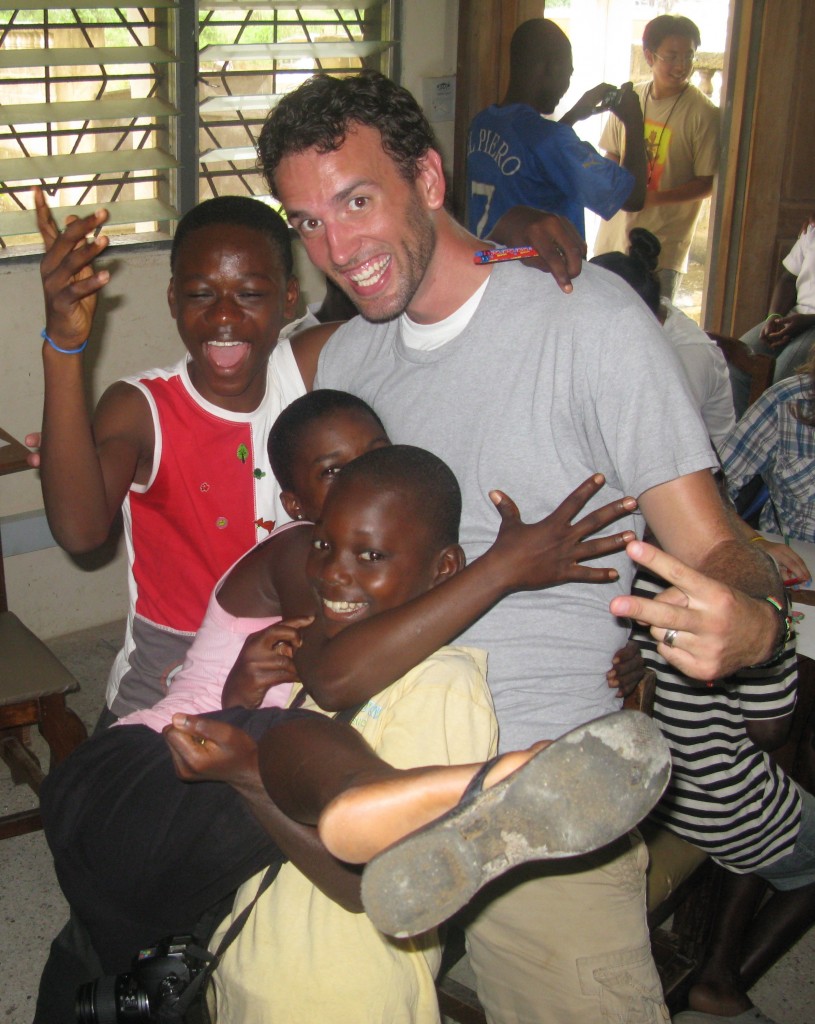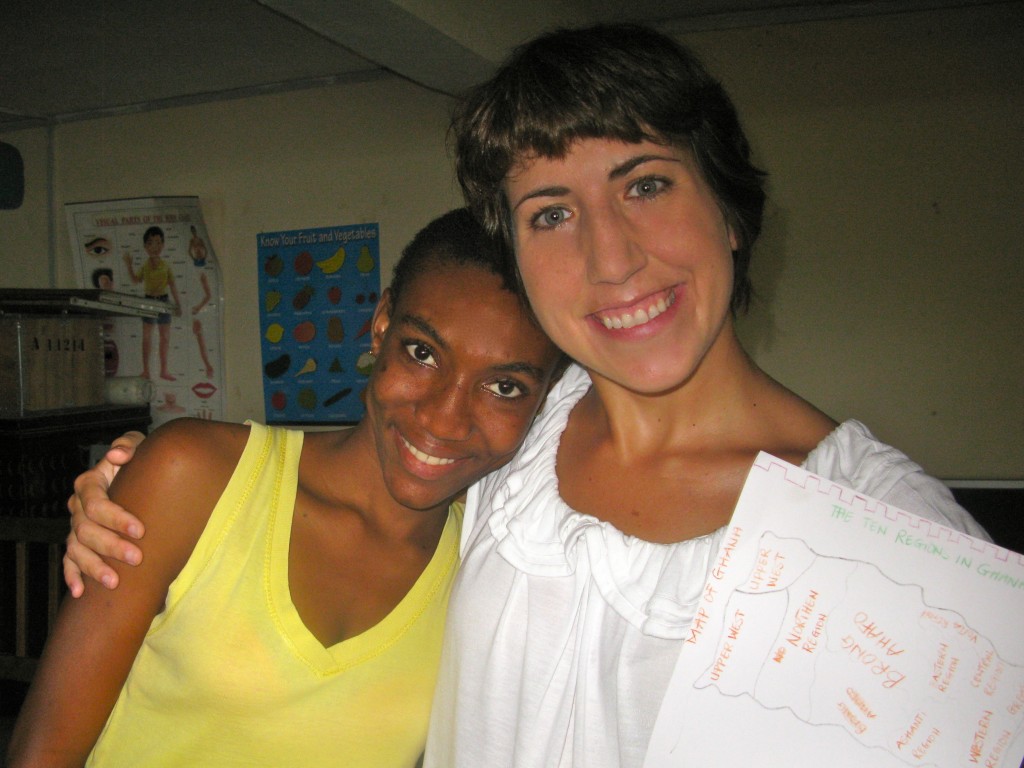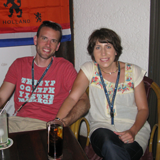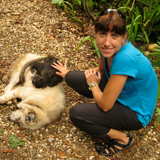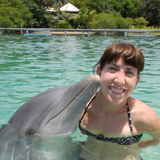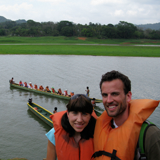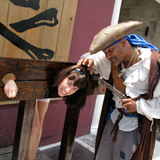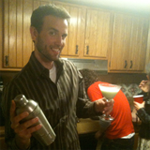Since South Africa is at least 20 hours of flight/travel time from the U.S., we decided that we had better live it up a little while there, so we splurged on a 4-day safari that started with a couple nights at the Addo Elephant Back Safari Lodge in Addo Elephant National Park. The Elephant Back Safari organization got its start by rescuing a trio of male elephants from a culling of the herds that was done in the mid-nineties in nearby Kruger National Park. Their names are Taba (Zulu for happy), Mukwa (he was named after local forest vegetation), and Duma (named after the thunderous sound he makes when he walks). Elephants have massively inefficient digestive systems, so they can really wreak havoc on an ecosystem if there are too many of them in an area. In the 90’s many adult elephants were killed in an effort to control the population within the Kruger. Thankfully, good people stepped in and rescued a number of the elephants because research since has shown that killing adult elephants can inflict severe psychological trauma on the babies and young that are left behind. Elephant over-population is still a problem in Kruger, but hopefully more reserves like the one we visited will be set up in the coming years to help with the problem. As one of our guides at the park, Walter, observed “Translocation of elephants to areas like this is the best option. This way, everybody wins. More land is preserved and protected; the elephants get a new lease on life; the people of South Africa get employment, which we need very badly; and you all get to have fun experiences and come to visit.” Well said, Walter.

Seeing these magnificent creatures up close and personal was awe-inspiring. Following them through the bush, feeling their tough, prehistoric skin, watching the myriad ways they use their super strong and impressively dextrous trunks–we are in awe of them. We spent most of the time with very sore cheeks because we were smiling so much at everything they did.
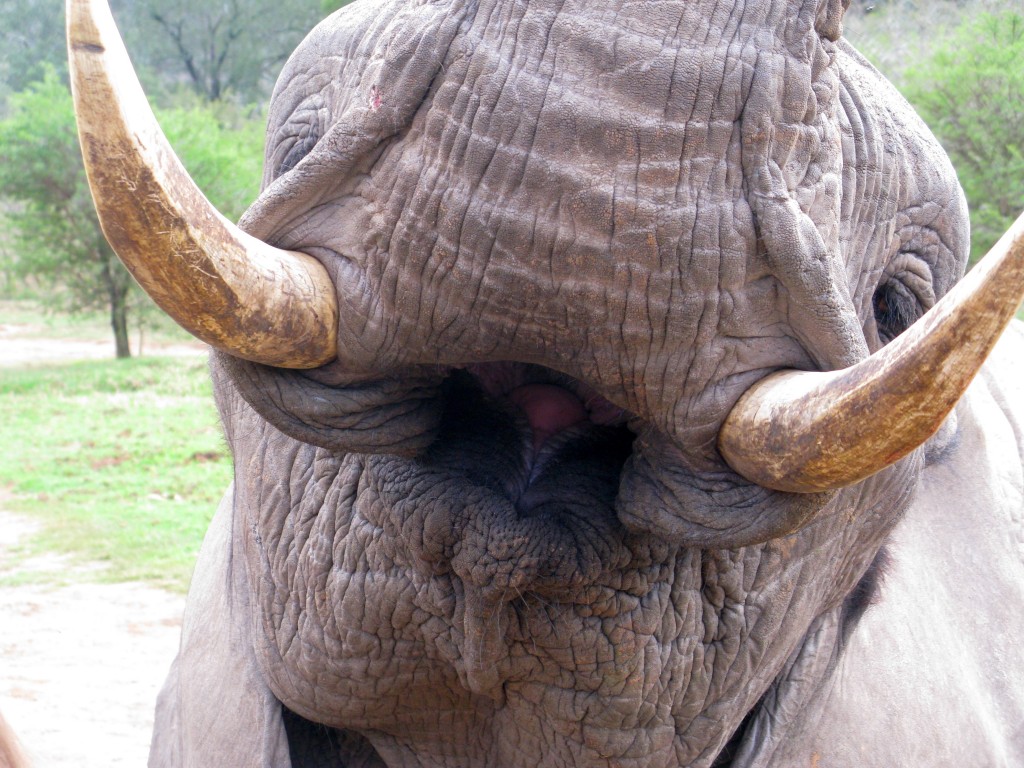
At Addo, the elephants are given 16 hours a day to roam the bush and forage for food. They spend about a half hour once to twice a day carrying visitors on their backs, and when there are no visitors, they have short training sessions instead. Their human handlers (all from Zimbabwe) follow along in the bush and observe them all day. They don’t interfere with their natural behaviors, rather, it’s their job to just let them do their elephant thing–eating thorn trees and vegetation, bathing in the mud, etc. Still, the bond between human and ellie is strong enough that if an ellie has gets sick or is in a bad mood, the handler watching over him is usually upset, too. Taba, Mukwa, and Duma are semi-tame–they do allow humans to ride on their backs, but they expect payment (food) in return. We rode on Taba two at a time with a guide, and of course we were happy to oblige with a full payment of food soon after! We also spent time on bush walks and safari rides through the park. We had so many great photos from our stay that we created a slideshow because we couldn’t choose between them.
Ellies from Sam and Shannon Bloomquist on Vimeo.
In the evening, the elephants head back to a big barn, where they open the doors themselves and head inside for a quiet night’s rest. It is the policy at the reserve not to force them into the barn, and when we were there the gentle giants were quite excited to head to bed.
Goodnight Elephants from Sam and Shannon Bloomquist on Vimeo.
If we ever go back to South Africa, we will return to this lodge. These beautiful animals are an absolute joy to spend time with, and the staff of the lodge is first-rate. Not only do they truly care for the ellies, they also practice sustainability measures, from using solar-powered hot water geysers in rooms to reusing everything they can and recycling what they can’t. The whole operation is a fantastic example of an alternative (and much kinder) way to handle the elephant overpopulation problems in South Africa and elsewhere!

